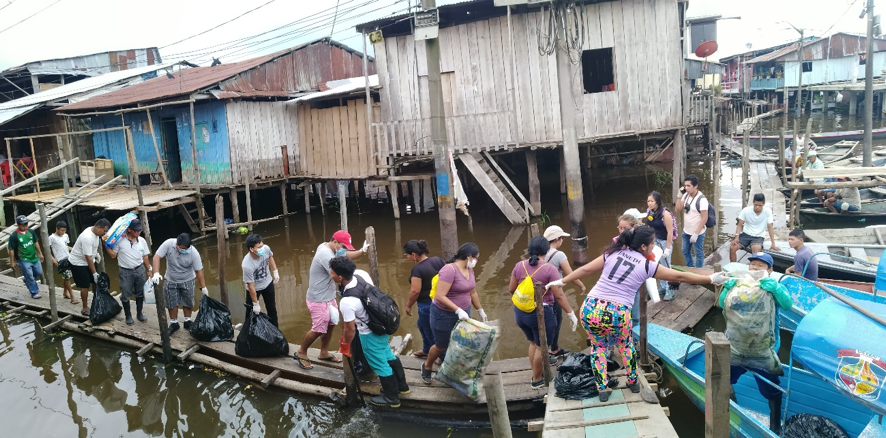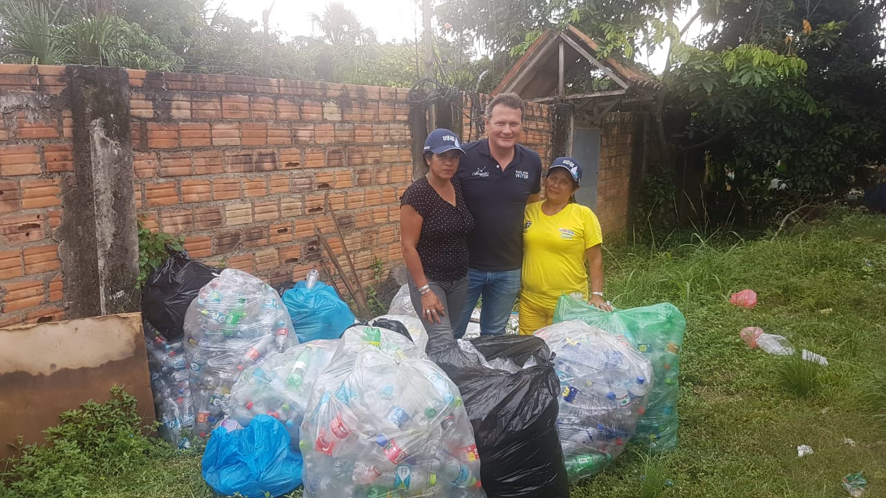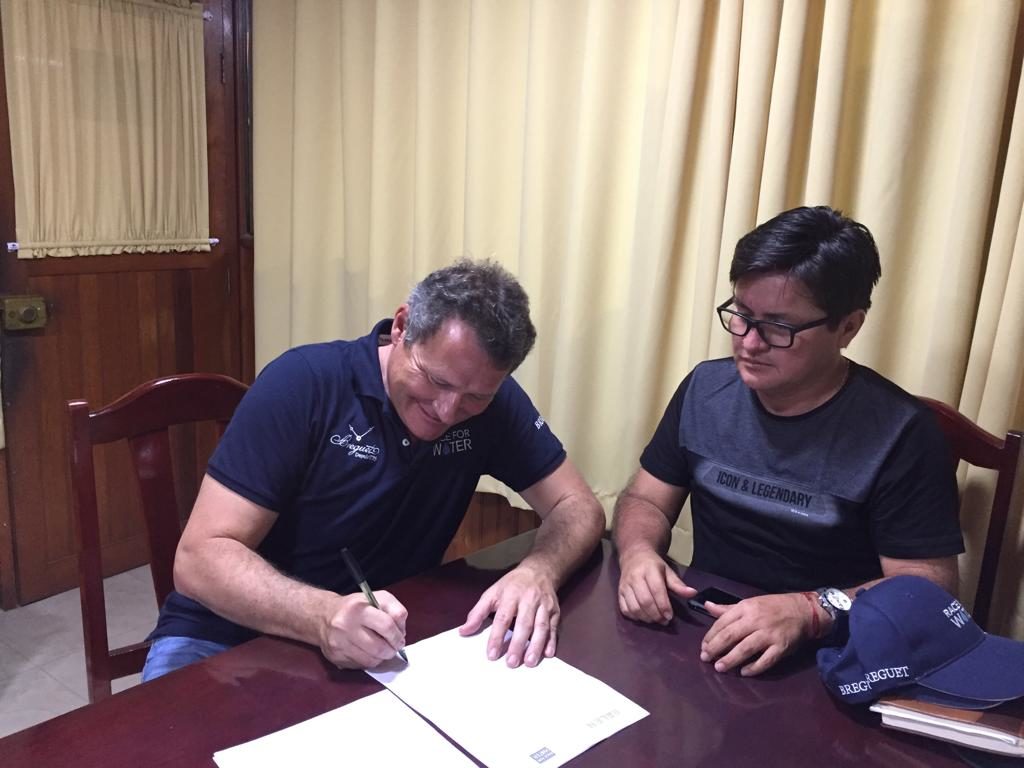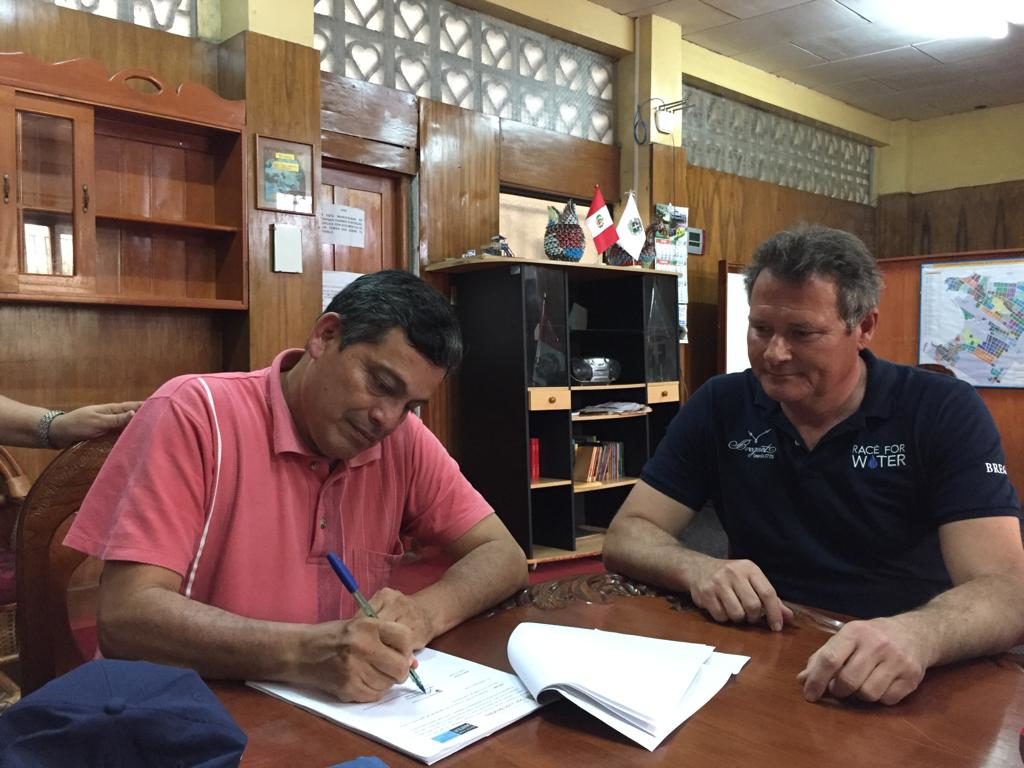Act in Iquitos (Peru)
A collaboration agreement has been signed between the Race for Water Foundation and the Municipality of San Juan, Iquitos, Peru, to study the possibility of implementing a Biogreen solution for the recovery of plastic waste into electrical energy.
Iquitos is a city of more than 400.000 inhabitants located in the middle of the Amazon jungle, at the source of the Amazon River. The main economic sectors in this province are oil exploitation and forestry. Due to its geographical location, the city enjoys an extremely biodiverse environment that is appreciated by tourists aware of environmental issues mainly (50.000 tourists per year).
It is also the world’s largest city not connected to the road network, making Iquitos the equivalent of an island. Access is only possible by air or water (4 days to reach a city connected to the road network – Pucallpa). The city is also not connected to the national interconnected electricity distribution system (SEIN).
The problem of waste management is therefore rather more problematic there than elsewhere, especially for recyclables. Collection is managed by the local authorities, though only part of the waste is collected for budgetary and organisational reasons or for reasons of complicated access, as is the case of the district of Belen, which is flooded 4 months of the year and where the municipality tries to collect waste by boat while the inhabitants are still in the habit of throwing waste directly into the river.
Of the waste that is collected, probably about half ends up in an uncontrolled and private landfill. Solid waste that is not collected ends up either directly (for districts located on the river) or via storm water or wastewater drainage, in the river.
The separation of solid recoverable waste is in its infancy thanks to the work of the NGO Ciudad Saludable, which has been working for several years with women in reintegration in some districts such as San Juan and Belen.

The price paid to street recyclers for plastic waste is very low in Iquitos due to the need to transport everything to Lima (by boat to Pucallpa, then by road to Lima). Moreover, depending on demand or the cost of virgin materials, prices fluctuate enormously, which makes it impossible to create a sustainable market and severely disadvantages the formal and informal recycling sectors.

Cuidad Saludable carried out a study on behalf of R4W on the plastic deposit available in Iquitos. The results show that we have enough to run a BGR 300 even considering low recovery rates, which allows us to focus on plastic not collected and not landfilled via street collection in line with the foundation’s objective.
- Belen: 72 Tonnes per day including 12%, or 8.6 tonnes of plastic
- Iquitos: 190 Tonnes per day including 11%, or 20.9 tonnes of plastic
- Punchana: 74 Tonnes per day including 9%, or 6.6 tonnes of plastic
- San Juan de Bautista: 112 Tonnes per day, 11% of which is 12 tonnes of plastic
During the mission we were able to meet with the new teams from the municipalities of the districts of Belen and San Juan de Bautista (Elections in October 2018). The two municipalities were very collaborative and interested in this project and we are taking the necessary steps to ensure a signature in record time of a letter of intent of collaboration with the Foundation.
We also met in Iquitos with agents from the company Electroriente, the only distributor of Iquitos, who told us that via the submission of a file at the Regional Directorate of the Ministry of Energy (DREM) the project could procure an approval for the production to be marketed and obtain a grant. The project is motivating for them and they could position themselves as a buyer of electricity at the system price ($75/MWh) and be an operator. The grant is received from the fund intended for this purpose (the FOSE) by the operator, as is the case with the current producer of Iquitos (Genrent).
In addition, in Lima we met with various waste and energy management operators who can support the project in Iquitos either through the incorporation of a BioGreen in a larger energy project, or by being an operator of the unit.
The next steps of the ACT Team will be to validate the application procedure at the DREM, welcome a delegation from Iquitos to visit the pilot site in Vernon and continue to structure the project around these key stakeholders.

